Results from the first-ever UK Musicians’ Census finds that half of women in music have experienced gender discrimination and a third have been sexually harassed
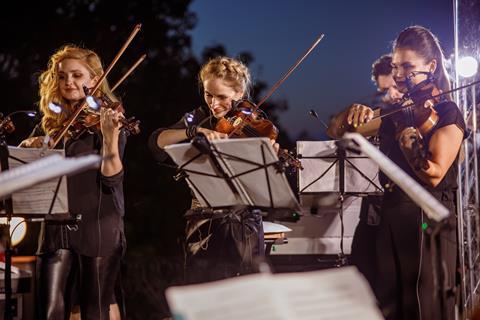
Read more news stories here
Released today, the latest findings from the first ever UK Musicians’ Census reveal that gender inequity is still a prominent, alarming issue in the music industry, with female musicians facing much higher levels of discrimination, sexual harassment, financial challenges, and structural barriers to career progression, than men. The Musicians’ Census is the largest ever survey of its kind by Help Musicians and the Musicians’ Union (MU). Joining support for the report is Women in CTRL, a movement working to dismantle barriers and create an inclusive industry where talent transcends gender, founded by senior music executive Nadia Khan.
Based on responses from 2,526 UK musicians who identified as women (out of nearly 6,000 musicians overall), this next wave of research draws attention to the continued challenges women face in building sustainable careers in music. It further found that women are paid less, and have much less career longevity than men, despite being trained and educated to a higher level.
More than half of women (51 per cent) have experienced gender discrimination while working as a musician. This is something experienced by only 6 per cent of male musicians - meaning women are more than eight times more likely to face this.
A third of women (33 per cent) reported being sexually harassed while working as a musician, and a quarter (25 per cent) of women have witnessed sexual harassment of others in music.
This is having a significant impact on women’s careers in music, where women make up two thirds (62 per cent) of those who identified work-related abuse or harassment as a career barrier, and 60 per cent of those who felt discrimination was a barrier to their career progression were women.
The gap in pay between men and women persists in the music industry, with women earning less and being significantly underrepresented in the highest income group. The average annual income for a female musician was found to be £19,850, compared to £21,750 for men - meaning women earn nearly a tenth less. Women also only make up just 19 per cent of the highest income bracket of those earning £70,000 or more from music each year.
The data on the pay gap comes despite the fact that women musicians are qualified to a higher level than men - both at a general and music education level. 14 per cent more women have a music degree, and 15 per cent have a postgraduate music qualification, but this doesn’t correlate with higher average earnings.
In line with being paid less, women musicians are more likely to experience financial challenges than men in music. Over a quarter of female musicians (27 per cent) said they don’t earn enough money to support themselves and their family, compared to 20 per cent of male musicians.
This is also affecting their career longevity, with women’s visibility in music decreasing with age. Women are more represented in younger age brackets, with 47 per cent of musicians aged 16-55 being women, but this drops significantly as they get older, at just 26 per cent after the age of 54. This could also be due to women experiencing higher levels of age discrimination, with 30 per cent of women reporting it than 21 per cent of men.
As well as financial barriers, women in music face more frequent and significant structural barriers to their career progression than wider musicians.
Female musicians have a higher rate of primary caring responsibilities (28 per cent compared to 20 per cent of other genders) and 22 per cent report being a primary carer for a child. This is a big factor that affects their career, with 29 per cent of women stating that family and caring commitments are a barrier to their career (vs 11 per cent of musicians of other genders).
This also leads to further issues impacting their music career longevity, such as inadequate childcare access and the inability to work unsociable hours. 15 per cent of women musicians said the difficulty finding appropriate childcare was a barrier to their career (compared to 7 per cent of musicians of other genders), and 29 per cent said unsociable working hours are a barrier (versus 19 per cent of others).
Gender also remains a potential determinant of the kinds of roles and genres that musicians work in. In terms of roles, 79 per cent of women are performing musicians, but are significantly underrepresented as engineers, producers and DJs. Women make up just 29 per cent of DJs and 24 per cent of producers, and only 15 per cent of live sound engineers and 12 per cent of studio/mastering engineers are women.
These trends may suggest that it’s still easier for women to forge careers in certain types of music and that specific action could be taken to ensure women have an equitable chance of being heard in all types of roles and genres.
Sarah Woods, chief executive of Help Musicians and Music Minds Matter commented: ’The findings of the latest Census report show there’s still so much work to be done to make sure that working as a musician is equitable for all. We hope these insights will encourage the industry to continue collaborating to reduce gender-based barriers and ensure gender equity in every part of music.
’At Help Musicians we understand that we need to play our part too. In 2024 and beyond, we’re adapting our support offer to invest more in women’s creative and career development, as well as reviewing our Bullying and Harassment service to establish whether there’s more we can do to help those who experience different types of harassment. Our sister charity Music Minds Matter is also working to create safe spaces for women to access mental health provision and peer support, as a result of the enhanced challenges women face as musicians.’
Naomi Pohl, Musicians’ Union General Secretary commented: ’The Census findings, set out in this report, illustrate the many discriminatory practices and behaviours still holding women back in their musical careers. We have long advocated for better pay gap reporting, and hope the Census findings will encourage the industry to take action, be more transparent and make change.
At the MU, we are working to address gender inequity across the music industry and the arts. Our Safe Space service continues to receive regular reports of unacceptable behaviour and if anything, there has been an increase in recent months. The Census data on sexual harassment highlights just how prevalent this is. We welcome the deeper insight into barriers to reporting instances of bullying, harassment and discrimination which we will highlight in our campaigning work. Our Women’s Network for members discusses many of the issues raised in the Census, and we look forward to sharing the detailed findings with them.’
Nadia Khan, founder of Women in CTRL commented: ’It’s alarming to witness the persistence of gender disparities highlighted by the UK Musicians’ Census, where discrimination, harassment, and unequal pay remain prevalent issues faced by women musicians, demanding urgent action. This pivotal moment presents a unique opportunity for change ahead of the next musicians’ census.
’It’s vital that the industry makes genuine commitments and takes decisive actions to prevent the recurrence of the same data. Women in CTRL firmly believe that change starts from the top, and we are steadfast in our commitment to continuing our leadership initiatives in the industry. True progress can only be achieved when we address these systemic issues head-on and create a more equitable landscape for women in music.’
Read: New study finds three in ten UK musicians suffer from low mental wellbeing
Read: Analysis December 2022: a safe space for female players
Read more news stories here
The number one source for playing and teaching books, guides, CDs, calendars and back issues of the magazine.
In The Best of Technique you’ll discover the top playing tips of the world’s leading string players and teachers. It’s packed full of exercises for students, plus examples from the standard repertoire to show you how to integrate the technique into your playing.
The Strad’s Masterclass series brings together the finest string players with some of the greatest string works ever written. Always one of our most popular sections, Masterclass has been an invaluable aid to aspiring soloists, chamber musicians and string teachers since the 1990s.
American collector David L. Fulton amassed one of the 20th century’s finest collections of stringed instruments. This year’s calendar pays tribute to some of these priceless treasures, including Yehudi Menuhin’s celebrated ‘Lord Wilton’ Guarneri, the Carlo Bergonzi once played by Fritz Kreisler, and four instruments by Antonio Stradivari.

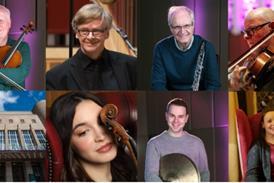

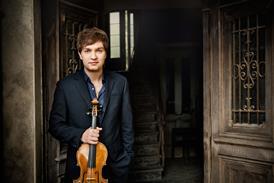

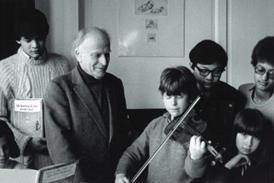



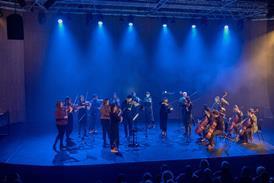



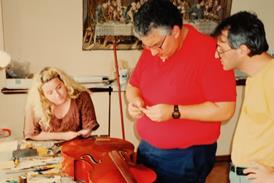


















1 Readers' comment